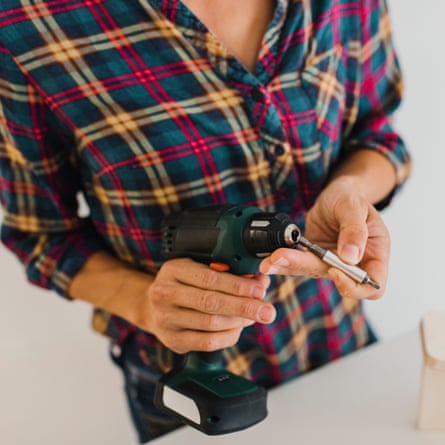“A range of scientific studies point to clear physical and mental benefits of supporting friends and family. And the deeper the engagement, the greater the feelgood factor
Like many people, I find that stress transforms me into a nasty combination of Oscar the Grouch and Scrooge McDuck. The more pressure I am under, the more irritable I feel – and the less generous I become. I partly blame our culture. I’ve read enough wellness advice to know that I need to prioritise my own needs over other people’s. And so, when I feel under pressure, I have often made it a habit to practise small indulgences aimed at restoring my mental equilibrium, while insulating myself from all but the most essential social commitments.
Having read the latest psychological research, I can’t help but wonder if this attitude only exacerbates my bad mood. A wealth of new studies has shown that being kind to others is often the most effective means of suppressing the physiological and psychological stress response. Whether we are giving our time to a charity, “paying it forward” in a coffee shop, or providing emotional succour to a friend in need, altruism can boost our wellbeing in ways that we simply do not experience from treating ourselves. Other-care, it seems, is often one of the best forms of self-care.
My interest as a science writer was first piqued by a series of papers examining the surprising vitality of volunteers. Over hundreds of studies, scientists have found that engaging in unpaid work for the good of others brings a notable boost to wellbeing. These include a greater sense of meaning and purpose, more self-esteem, higher overall life satisfaction and reduced risk of depression. Quite amazingly, it even seems to reduce the risk of death. “The effect on mortality really stands out,” says Beth Nichol, an associate lecturer at Northumbria University and lead author of a recent scientific review summarising the evidence.
One experiment showed that giving support seems to create a warm buzz of pleasure while dampening feelings of stress
In large population studies such as these, it is always possible that a third “confounding” factor might explain the apparent link. Volunteers may be in better shape before they even start their altruistic endeavours, for example. “Health is a resource that allows us to participate in society,” explains Prof Arjen de Wit, a sociologist at VU Amsterdam. Then there’s wealth: richer people, who can afford better medical care and therefore may live longer, may be more likely to volunteer.
The scientists have tried to control for these possibilities, however, and a significant result still remains. A recent meta-analysis, for example, assessed the effects of volunteering for people aged 65 and older, from 26 of the highest-quality studies available. It concluded that the average volunteer has a 57% chance of outliving the average person who does not volunteer..

A large investigation led by De Wit, covering data from a quarter of a million European participants, suggests that the benefits may be cumulative. “If you have a year-by-year effect on your health, then it can add up if you keep on volunteering, and that can make a difference, especially for older people,” he says.
Before you sign up with a local charity, it is worth noting that many other altruistic activities seem to bring a similar health bonus. Taking care of friends or family members – through emotional support or by running practical errands – is also thought to increase longevity, for instance. “The scientific evidence at this point is quite strong,” says Tristen Inagaki, an associate professor in psychology at San Diego State University. “Three separate studies have shown that giving more social support to a spouse or someone else that we’re close to is related to lower mortality – so more giving predicts greater longevity across five, seven, and 23-year periods.”
Why would this be? One possible explanation is that supporting others simply increases physical activity, as we bustle around making ourselves useful. Inagaki’s research, however, suggests that the benefits may lie deep in the brain’s emotional processing.
In one experiment, she asked 20 women to undergo a brain scan while holding hands with their partners, who received unpleasant electric shocks. Inagaki saw increased activity in the ventral striatum and septal area – regions that are known to be involved in reward – and reduced activity in the amygdala, which tends to respond to threat and danger. The act of giving support, in other words, seemed to be creating a warm buzz of pleasure while dampening feelings of stress.
Inagaki saw a similar response when participants donated raffle tickets to a friend or family member. Intriguingly, the extent of this neural activity seemed to be linked to their habitual behaviour. People who endorsed statements such as “I give others a sense of comfort in times of need” saw bigger changes in these key brain regions.
The regions involved in stress suppression, Inagaki says, can influence the actions of the cardiovascular and immune systems, which would explain why kind and supportive behaviour is associated with better health.
The greatest benefits appear to come when we combine our kind and generous behaviour with meaningful social engagement
It is enticing to think that we might be able to harness these benefits for ourselves while making the world a better place for others, too. The gold standard of any study is the randomly controlled trial, in which participants are assigned to receive the active treatment or a placebo. There are, however, some inherent difficulties in “prescribing” generous behaviour and measuring the effects – but a few scientists have attempted to overcome these challenges, and their findings are intriguing.
Consider a study led by Ashley Whillans at Harvard Business School, which examined the benefits of gift-giving for people who had previously been diagnosed with hypertension.
Each participant was given three payments of $40, contained in a sealed bottle, over six weeks. Half were advised to indulge themselves, while the rest were encouraged to treat another person. “It does not matter how you spend the $40, as long as you spend it on someone else,” they were told.
The result was a significant drop in blood pressure, over and above their existing treatments for hypertension. To give precise figures: the generous group recorded 113.85 systolic and 67.03 diastolic mmHg, compared with 120.71 and 72.97 mmHg in the self-serving participants. The difference is equivalent to the effects of taking hypertension medication or embarking on a new diet and exercise regime.
The greatest benefits appear to come when we combine our kind and generous behaviour with meaningful social engagement. Researchers in Canada and the US gave random passersby at a university campus a $10 Starbucks gift card. Some were told to give the card to another person, without accompanying them to the coffee shop, while others were asked to join the recipient and enjoy a drink together. A third group were encouraged to meet up with someone, but use the card to buy a coffee for themselves, while the fourth group were told to go to the coffee shop alone and enjoy some “me time” with their free drink. That evening, each participant completed questionnaires measuring their emotional wellbeing.

We can guess that most of the people across the experiment were quite chuffed at the free voucher, but the biggest mood boost went to the people who treated their companion to coffee and conversation, maximising the opportunity for social connection.
Gillian Sandstrom, a psychology lecturer at the University of Sussex, suspects it’s all about the feedback you receive. “I think we intuitively know that kindness is a good thing,” says Sandstrom, who was a co-author of the coffee-card study. “But if you’re just writing a cheque, you don’t get the same feelgood factor as if you can see the difference that you’ve made.” This was evident when her colleagues examined the effects of charitable donations: people get more satisfaction from giving money to someone personally connected to the charity than simply putting some cash in a collection box.
Inagaki suspects this will be true for many kinds of social support; we need to know that our actions have had the desired impact. “If we feel the care we’ve given doesn’t address the need, or help the person or the cause, or alleviate the problem, there are reasons to hypothesise that giving that kind of care will be less beneficial for health,” she says. The effects may also depend on our sense of autonomy. Feeling obliged to cook and clean for an ungrateful family member may feel very different from willingly offering our support to a friend who has just left hospital, for example, and who makes it clear that our efforts are deeply appreciated.
Much remains to be discovered, including the influence of gender. Most studies do not show any consistent differences in the amount of help offered by men or women, or in the health benefits of those actions. Sandstrom’s research, however, suggests that we do have gendered beliefs about the types of help and support we should offer, and participants tend to worry about breaking those norms. A man may be less comfortable cooking chicken soup for a sick friend, while a woman may expect some kind of negative judgment for doing household repairs. “Researchers don’t think that there is any difference in how kind men and women are, just in the way that they enact it,” she says. Overcoming those biases may help us find new opportunities to help others that we currently miss.
Like any psychological strategy, we should apply the lessons of this research with suitable caution. If you are struggling to cope, it is still wise to establish clear personal boundaries; there are no benefits to becoming a martyr.
If you do have the time and resources, however, you may find prioritising other-care to be the perfect antidote to your bad moods and lethargy. Despite some initial scepticism, I practise this myself. My irritability, I’ve realised, is often a sign that I need more contact with others, not less, and so I seek opportunities to overcome those moments of misanthropy. I invariably feel better for having shifted my mental focus outwards – and perhaps I’ll even live longer as a result”.

